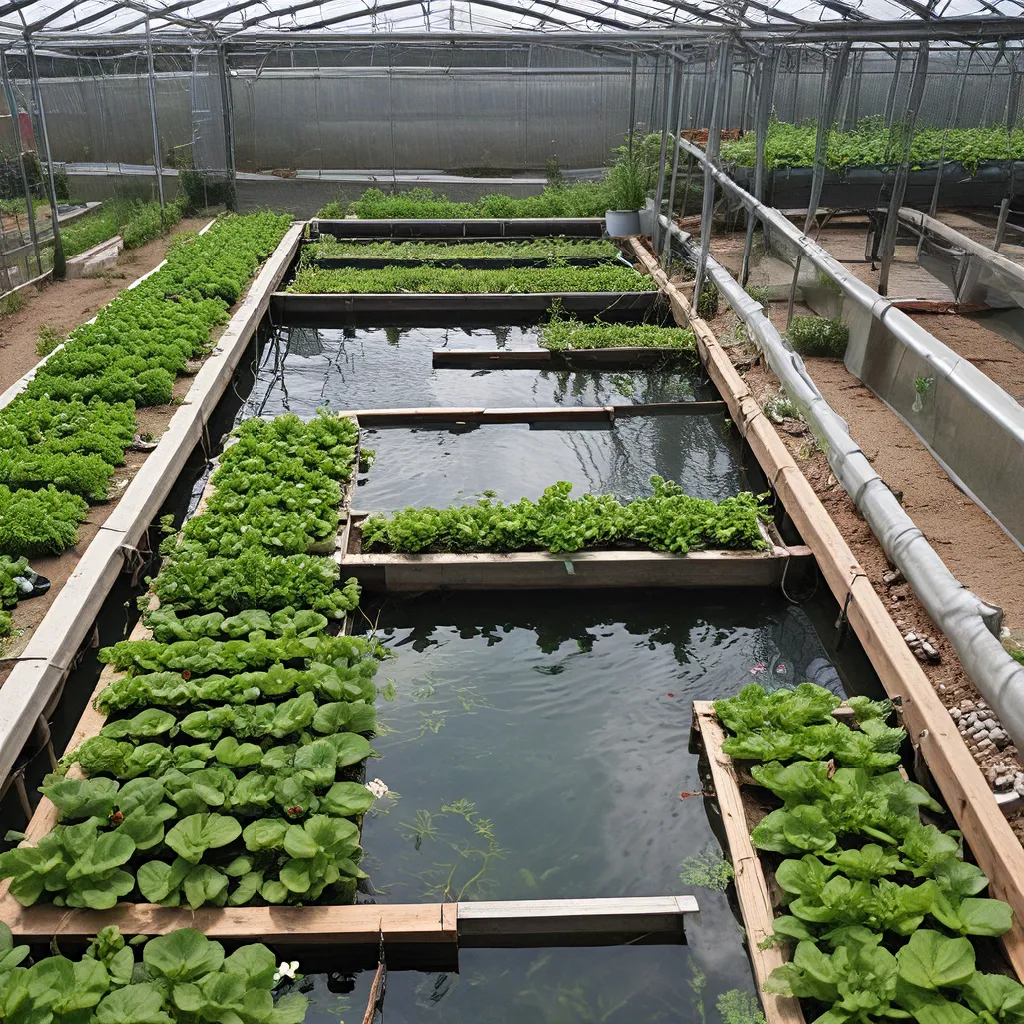
As an avid gardener and environmental enthusiast, I’ve long been fascinated by the concept of aquaponics – the integration of aquaculture (fish farming) and hydroponics (soil-less plant cultivation). Recently, I’ve discovered an even more intriguing application of this technology: its potential to revolutionize wastewater management.
You see, wastewater treatment is a critical issue that we can no longer afford to ignore. With populations growing and resources dwindling, we need to find innovative solutions that not only clean our water but also replenish our natural ecosystems. And that’s where aquaponics comes into play.
Aquaponics: A Symbiotic Approach to Resource Recycling
At its core, aquaponics is a closed-loop system that mimics the natural water cycle. Fish waste provides the necessary nutrients for plants to thrive, while the plants, in turn, purify the water for the fish. It’s a beautifully symbiotic relationship that not only produces fresh produce and protein-rich fish but also helps to clean and recycle the water used in the process.
What’s particularly exciting is that this same principle can be applied to wastewater management. By integrating aquaponic systems into wastewater treatment facilities, we can create a sustainable cycle of resource recovery and reuse.
Transforming Wastewater into a Valuable Resource
Imagine a world where the water we use every day isn’t simply flushed away, but rather, becomes a renewable source of nutrients and energy. That’s the promise of integrating aquaponics with wastewater management.
As research has shown, aquaponic systems can effectively remove pollutants and recycle nutrients from wastewater. The fish waste provides an abundant supply of nitrogen, phosphorus, and other essential nutrients that plants can then use to grow. This not only purifies the water but also produces valuable agricultural products in the process.
But the benefits don’t stop there. Some experts believe that integrating aquaponics with wastewater management can also reduce energy consumption and greenhouse gas emissions associated with traditional wastewater treatment methods. By harnessing the natural processes of the aquaponic system, we can create a more sustainable and efficient approach to water purification.
Pioneering a New Era of Water Stewardship
As exciting as these prospects may be, I understand that implementing aquaponic wastewater systems is not without its challenges. There are complex technical, regulatory, and economic hurdles to overcome, and the research is still evolving.
However, I’m convinced that this is a path worth exploring. With the right innovations and collaborative efforts, we can unlock the full potential of aquaponics to transform wastewater from a problem into a valuable resource.
Recent studies have already demonstrated the feasibility and effectiveness of integrating aquaponics into wastewater treatment systems. And as the technology continues to advance and the regulatory landscape evolves, I believe we’ll see more and more successful implementations of this sustainable approach.
One thing is for certain: the future of wastewater management lies in our ability to think outside the box and embrace innovative, nature-based solutions. And with the power of aquaponics, I believe we can create a future where water is not only clean but also a valuable, renewable resource that nourishes our communities and our planet.
So, why not join me on this exciting journey towards a more sustainable future? Explore the possibilities of integrating aquaponics with your wastewater management and be a part of the revolution that’s transforming the way we think about and manage our most precious resource: water.